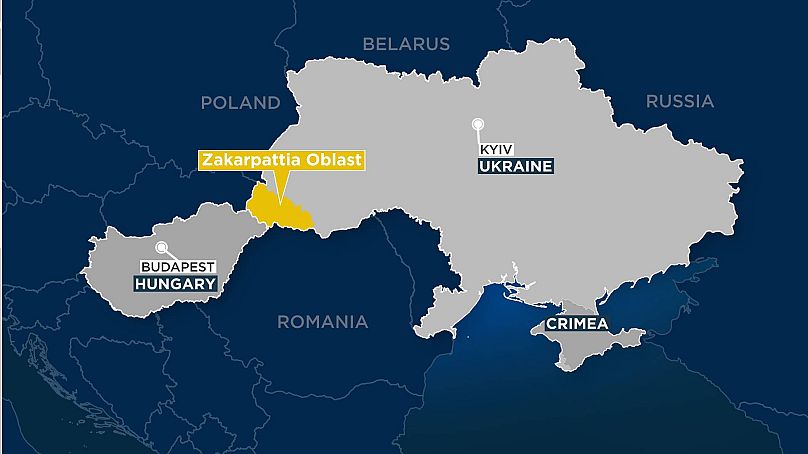Budapest’s response to a new language law in Ukraine is evidence of its "pro-Kremlin stance", an expert has told Euronews.
Hungary’s language row with Ukraine is more about ‘sucking up’ to Russia than protecting minority communities, an expert has claimed.
 ADVERTISEMENT
ADVERTISEMENT
 ADVERTISEMENT
ADVERTISEMENT
Budapest hit out after Kyiv passed a law scrapping the teaching of subjects in the country’s marginal languages, which includes Hungarian.
There are around 150,000 ethnic Hungarians in Ukraine, the majority in the western border region of Zakarpattia Oblast.
There are also sizeable Russian and Romanian communities.
The new law was seen by some as an attempt to reduce Moscow’s influence in Ukraine after the annexation of Crimea in 2014.
“It’s not just about trying to restrict Russian influence it’s also about trying to create a bigger sense of unity through language,” Mathieu Boulegue, an expert on Ukraine from international affairs think tank Chatham House, told Euronews.
The language change was criticised by Hungary, who used the issue to try and block a meeting between NATO and Ukraine.
Kyiv is keen to join the transatlantic security alliance, which was formed to defend countries against a Russian attack.
“This is nothing to do with NATO in as much as Hungary’s reaction is voluntarily overblown. It’s a tit-for-tat reaction that is not just about the language law, there’s a way stronger political message, an ideological one.
“Hungary’s arguments and the language law is simply a scapegoat and a pretext to use it as a springboard to convey a more pro-Russian, pro-Kremlin stance.
“Hungary has become a sort of pro-Kremlin vessel of propaganda.
“Orban has always been a critic of sanctions, he’s also been quite positive about Putin’s actions, he never really condemned the annexation of Crimea.
“It’s about a suck-up to Putin because he also needs energy and business deals from Russia to run smoothly.”
Boulegue added Hungary was exaggerating the law's impact as children would still be taught minority languages at primary school.
The law, which only applies to secondary schools, was also criticised by Russia and Romania.
Russia’s Foreign Ministry said it was designed to "forcefully establish a mono-ethnic language regime in a multinational state".
Meanwhile the Venice Commission, which rules on rights and democracy disputes in Europe, said the strong domestic and international criticism was “justified”, even though it was “legitimate” for Ukraine to attempt to address inequalities by helping citizens gain fluency in Ukrainian.
Euronews contacted the Hungarian government to respond to the criticism but it had not replied at the time of publication.











